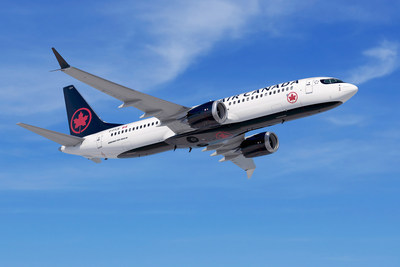Air Canada’s top executive sounded more optimistic on the chances of a government aid package, as a prolonged travel slump forces it to further cut capacity.
Canada’s biggest airline said it’s going to burn more cash this quarter after reporting fourth-quarter revenue that trailed analysts’ estimates. Yet outgoing Chief Executive Officer Calin Rovinescu, who has criticized the government of Justin Trudeau for not supporting the industry, struck a more positive tone this time.

The improvement may be connected to the latest measures announced by Trudeau last month, which toughened quarantine rules and led airlines to suspend flights to the Caribbean and Mexico. With already stringent policies in places since March, air travel in Canada hasn’t even begun to bounce back from the Covid-19 crisis.
Passenger traffic at airport checkpoints in January was just 13% of last year’s levels, versus 38% in the U.S., according to data from the countries’ transportation authorities.
In the first week of February, it’s slipped below 9%. Air Canada has taken advantage of federal wage subsidies, for a net benefit of C$554 million last year, it said Friday. But unlike the U.S. and most other developed economies, there’s been no dedicated aid package to help airlines withstand the crisis.
Air Canada said it plans to reduce capacity by 85% in the first quarter compared with 2019, more than the 80% expected just a month ago, due to the government’s latest restrictions. It said net cash burn will be to C$15 million and C$17 million in the current quarter, from C$15 million a day the fourth quarter, in parts because of lower advance ticket sales and higher capital expenditures.
“Air Canada’s largest roadblock is now the Canadian government’s severe travel restrictions,” Helane Becker, an analyst at Cowen & Co., said in a note.
“Once the government opens its borders, we believe there will be a rush to the exit. There is significant pent-up demand among Canada’s citizens, who have been locked down for almost a year,” Becker said.









